reduced shank drill bits Suppliers
Reduced shank drill bits are designed with a shank diameter smaller than the drill bit's cutting diameter, allowing larger holes to be drilled with smaller chuck capacities. This guide explores the benefits, types, selection criteria, and applications of reduced shank drill bits, providing essential information for users to make informed purchasing decisions and optimize drilling performance.
Understanding Reduced Shank Drill Bits
What are Reduced Shank Drill Bits?
Reduced shank drill bits, also known as 'shankless' or 'step-shank' drill bits, feature a shank diameter that is smaller than the diameter of the cutting flutes. This design allows users to drill larger holes using drills with smaller chuck sizes, which is particularly useful in situations where a larger drill would normally require a more powerful and expensive drilling machine. They are commonly available in sizes exceeding ? inch, which is often the maximum capacity of standard drill chucks.
Benefits of Using Reduced Shank Drill Bits
- Increased Versatility: Allows larger diameter drilling with smaller drills.
- Cost-Effectiveness: Avoids the need to purchase larger, more expensive drilling machines.
- Portability: Enables larger hole drilling in portable drilling setups.
- Accessibility: Facilitates drilling in confined spaces where larger drills may not fit.
Types of Reduced Shank Drill Bits
Twist Drill Bits with Reduced Shank
The most common type, twist drill bits with reduced shanks are used for general-purpose drilling in various materials like wood, metal, and plastic. They are available in high-speed steel (HSS), cobalt, and other materials to suit different applications.
Step Drill Bits with Reduced Shank
Step drill bits create holes of multiple diameters in a single pass. Those with reduced shanks are advantageous when working with thinner materials, such as sheet metal, and offer a clean, burr-free finish.
Auger Bits with Reduced Shank
Auger bits are designed for drilling deep, clean holes in wood. Some auger bits are available with reduced shanks for use with smaller chuck sizes, especially in woodworking applications.
Selecting the Right Reduced Shank Drill Bit
Material Considerations
The material of the drill bit is crucial for optimal performance and longevity. Common materials include:
- High-Speed Steel (HSS): Suitable for general-purpose drilling in wood, plastic, and soft metals.
- Cobalt: Offers superior heat resistance and is ideal for drilling in harder materials like stainless steel and cast iron.
- Titanium Nitride (TiN) Coated: Provides increased surface hardness and wear resistance, extending the life of the bit.
- Carbide-Tipped: Best for abrasive materials like masonry and hardened steel.
Size and Shank Diameter
Ensure the drill bit's cutting diameter matches the desired hole size and that the reduced shank diameter is compatible with your drill chuck. Common shank sizes for bits larger than ? inch include 3/8 inch and ? inch.
Application and Material
Consider the material you'll be drilling and the specific application. For example, drilling stainless steel requires a cobalt drill bit with a reduced shank, while drilling wood may only require an HSS bit.
Applications of Reduced Shank Drill Bits
Metalworking
Reduced shank drill bits are widely used in metalworking for drilling holes in sheet metal, steel plates, and aluminum profiles. Fabricators often rely on these bits when using smaller, more portable drilling machines on-site. Wayleading Tools provides various drill bit options suitable for metalworking. You can check out their collection of drill bits on www.wayleading.com.
Woodworking
Woodworkers use reduced shank drill bits for creating larger holes for dowels, plugs, and other joinery applications. Auger bits with reduced shanks are particularly useful for drilling deep, clean holes in timber.
Construction
In construction, reduced shank drill bits are used for various tasks, including drilling holes for pipes, conduits, and fasteners. They are especially beneficial when working in tight spaces or using portable drilling equipment.
Proper Usage and Maintenance
Drilling Speed and Feed Rate
Use the appropriate drilling speed and feed rate for the material being drilled. Refer to a drilling speed chart or the drill bit manufacturer's recommendations. Excessive speed or feed rate can cause overheating, premature wear, and breakage.
Coolant and Lubrication
When drilling metal, use a suitable coolant or cutting fluid to reduce friction and heat. This will extend the life of the drill bit and improve the quality of the hole. For wood, lubrication is generally not required.
Sharpening and Storage
Keep your reduced shank drill bits sharp. Dull bits require more force to drill, increasing the risk of breakage and reducing the quality of the hole. Store drill bits in a dry place to prevent rust and corrosion. Consider using a drill bit index or case to keep them organized and protected.
Troubleshooting Common Issues
Drill Bit Breakage
Drill bit breakage can occur due to several reasons, including:
- Using the wrong type of drill bit for the material.
- Excessive drilling speed or feed rate.
- Insufficient coolant or lubrication.
- Dull drill bit.
- Applying excessive pressure.
To prevent breakage, select the appropriate drill bit for the material, use the correct drilling speed and feed rate, provide adequate coolant or lubrication, keep your drill bits sharp, and avoid applying excessive pressure.
Hole Quality Issues
Poor hole quality can result from dull drill bits, improper drilling speed, or inadequate work piece clamping. Ensure the drill bit is sharp, use the correct drilling speed, and securely clamp the work piece to prevent movement during drilling.
Conclusion
Reduced shank drill bits offer a versatile and cost-effective solution for drilling larger holes with smaller drilling machines. By understanding the different types, selecting the right material and size, and following proper usage and maintenance practices, users can achieve optimal drilling performance and extend the life of their drill bits. Wayleading Tools is dedicated to providing high-quality drilling solutions. Contact us today to find the perfect reduced shank drill bits for your needs.
Frequently Asked Questions (FAQs)
What is the standard size reduction for reduced shank drill bits?
The most common reduction is to a 3/8' or 1/2' shank. However, other sizes may be available depending on the overall drill bit diameter.
Can I use reduced shank drill bits in a regular drill chuck?
Yes, as long as the reduced shank diameter is compatible with the drill chuck's capacity.
Are reduced shank drill bits as strong as full-shank drill bits?
While the shank is smaller, quality reduced shank drill bits are designed to withstand the torque and stress of drilling. Choosing a reputable supplier like Wayleading Tools ensures you get a durable and reliable product.
Related products
Related products
Best selling products
Best selling products-
 30PCS HSS Metric And Inch Size MINI Tap & Die Set
30PCS HSS Metric And Inch Size MINI Tap & Die Set -
 Metric HSS 13mm Reduce Shank Drill Bit For Metal Cutting Of High Precision
Metric HSS 13mm Reduce Shank Drill Bit For Metal Cutting Of High Precision -
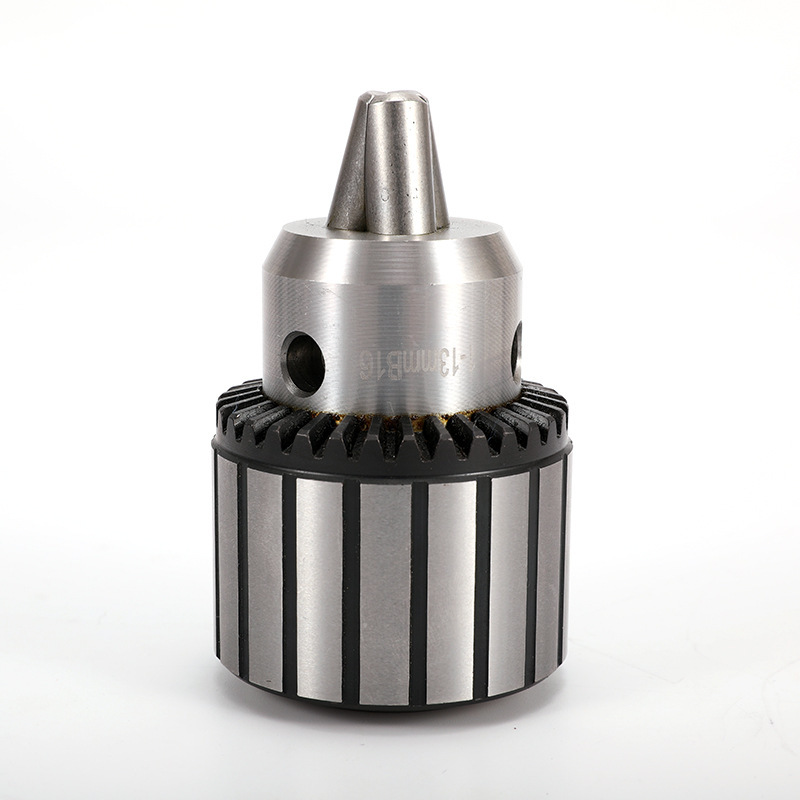 Key Type Drill Chuck With Heavy Duty Type
Key Type Drill Chuck With Heavy Duty Type -
 Plain Back ER Collet Fixture With Lathe Collet Chuck
Plain Back ER Collet Fixture With Lathe Collet Chuck -
 32 Blades Feeler Gauge From 0.04-0.88MM
32 Blades Feeler Gauge From 0.04-0.88MM -
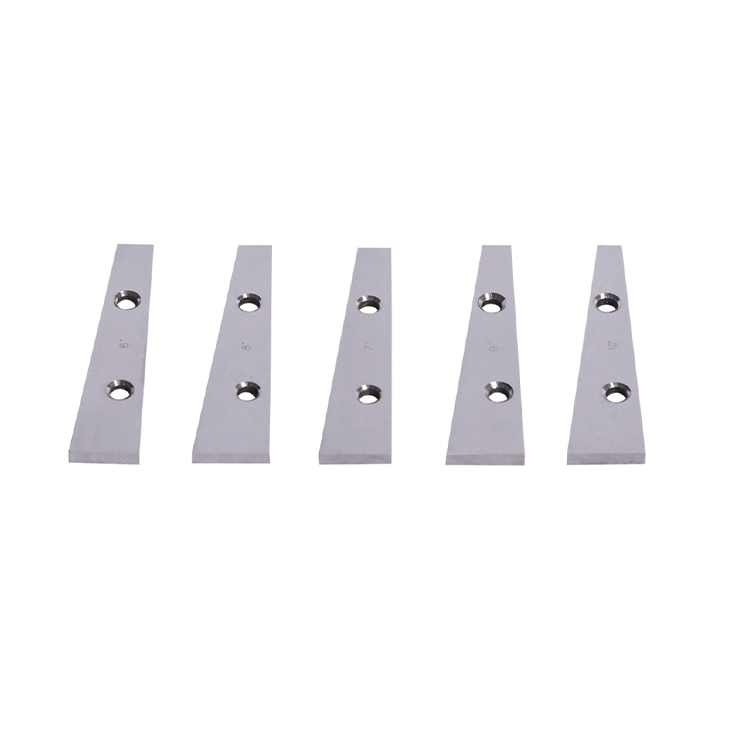 Precision 5pcs & 6pcs Angle Blocks Set With High Quality Type
Precision 5pcs & 6pcs Angle Blocks Set With High Quality Type -
 Precision Monoblock Fine-Adjustment Vernier Caliper Of Metric & Imperial For Industrial
Precision Monoblock Fine-Adjustment Vernier Caliper Of Metric & Imperial For Industrial -
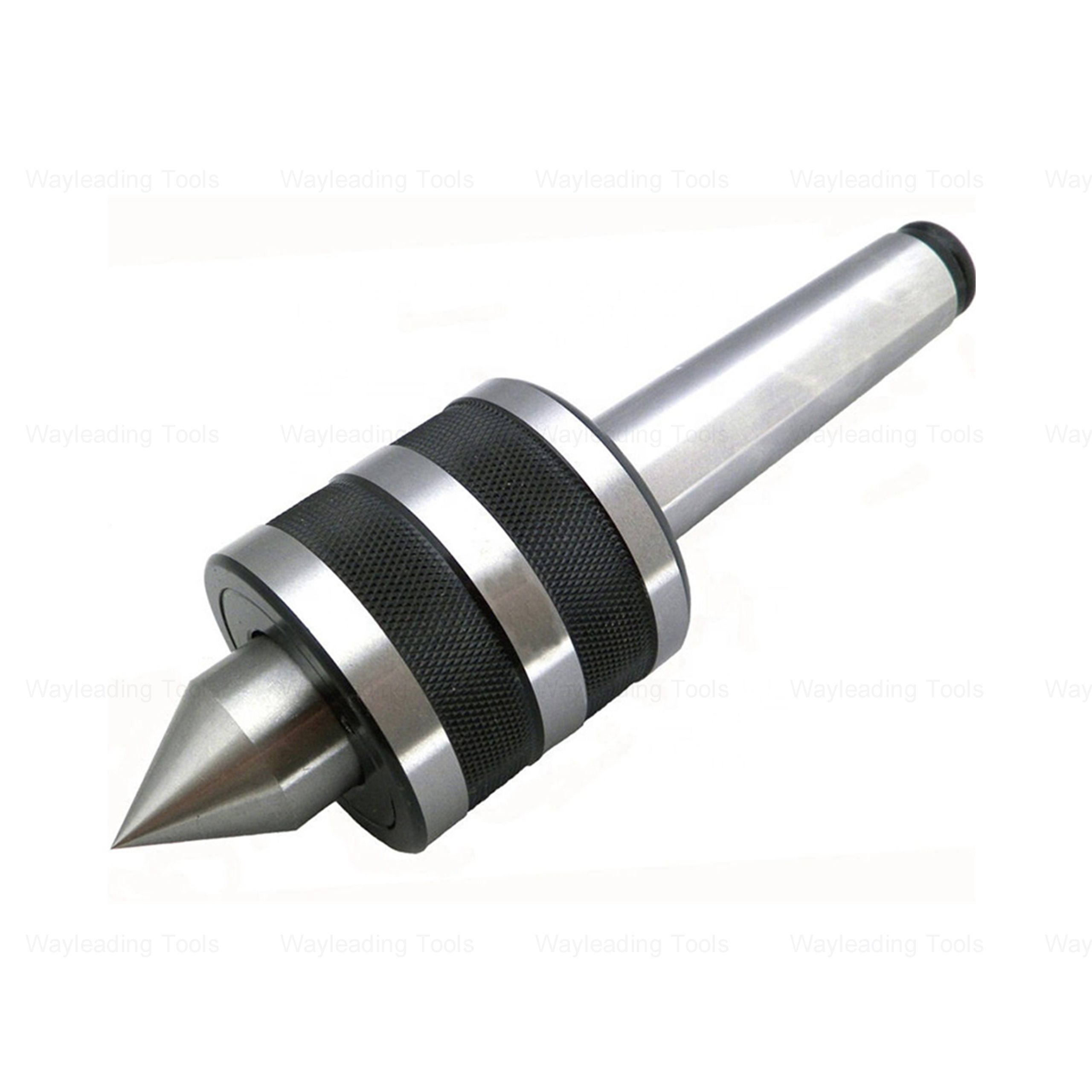 High Precision Medium-Duty Live Center – Hardened Tip, Morse Taper Shank
High Precision Medium-Duty Live Center – Hardened Tip, Morse Taper Shank -
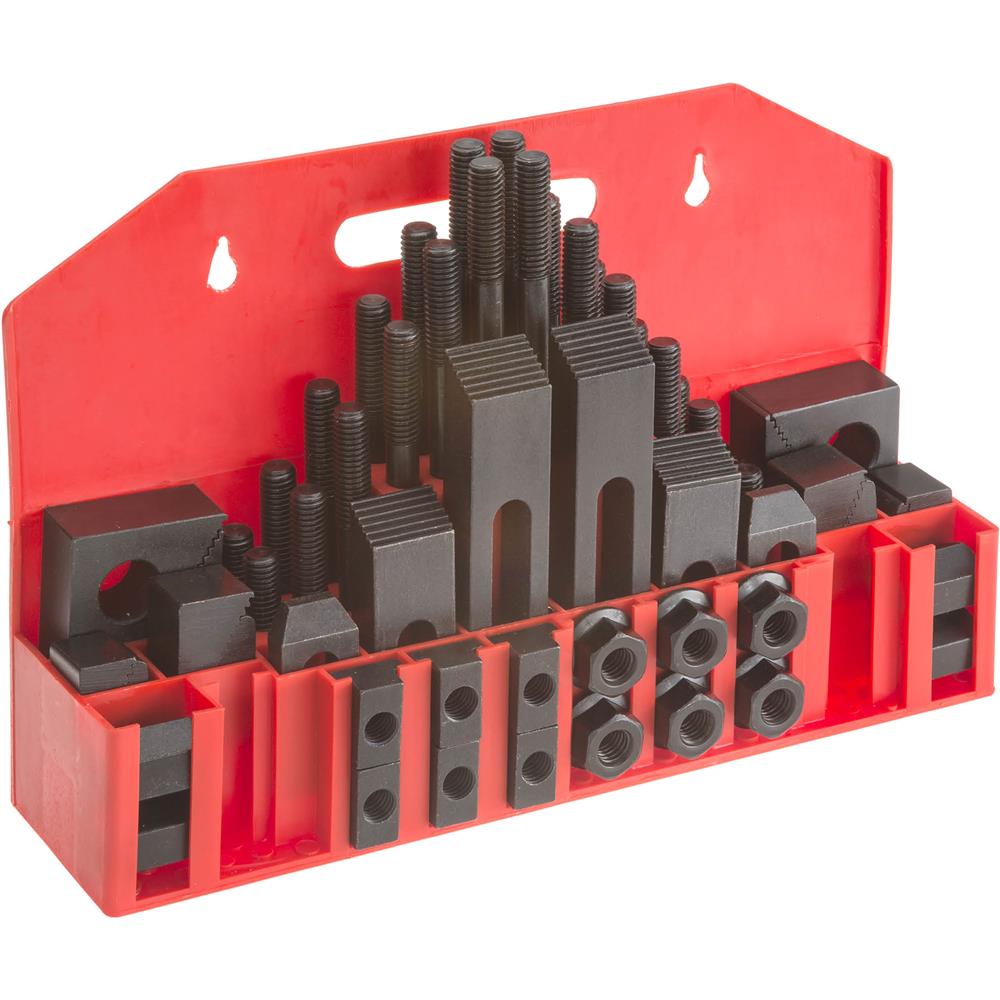 58pcs Clamping Kit With Metric & Inch Size
58pcs Clamping Kit With Metric & Inch Size -
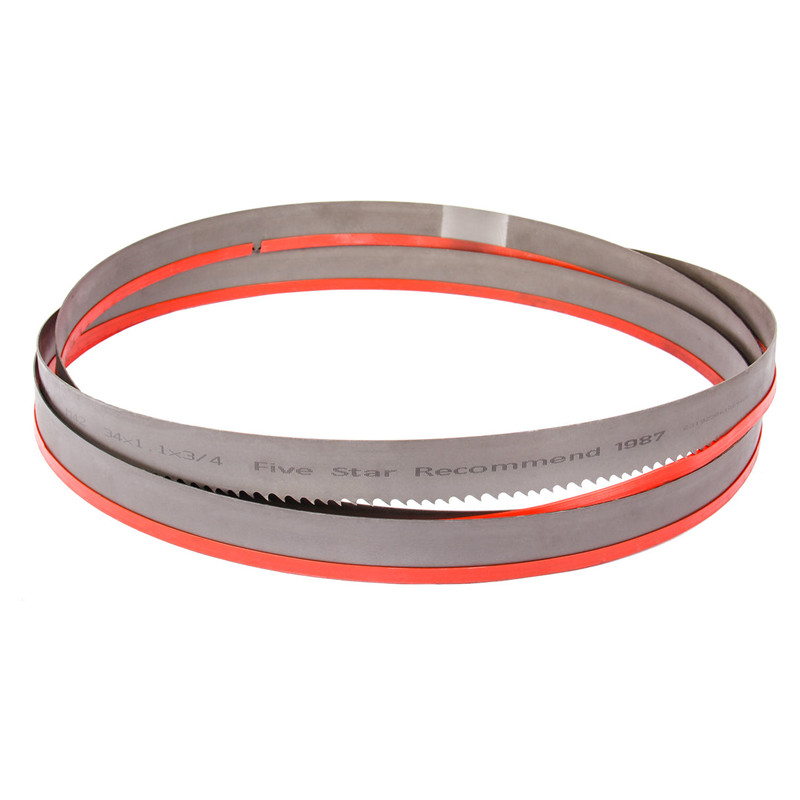 M51 Bi-Metal Bandsaw Blades For Industrial Type
M51 Bi-Metal Bandsaw Blades For Industrial Type -
 Precision Dial Indicator Gage For Industrial With Jeweled
Precision Dial Indicator Gage For Industrial With Jeweled -
 HSS ISO Metric Round Die Wieh Splite Or Adjustable Splite Type
HSS ISO Metric Round Die Wieh Splite Or Adjustable Splite Type









